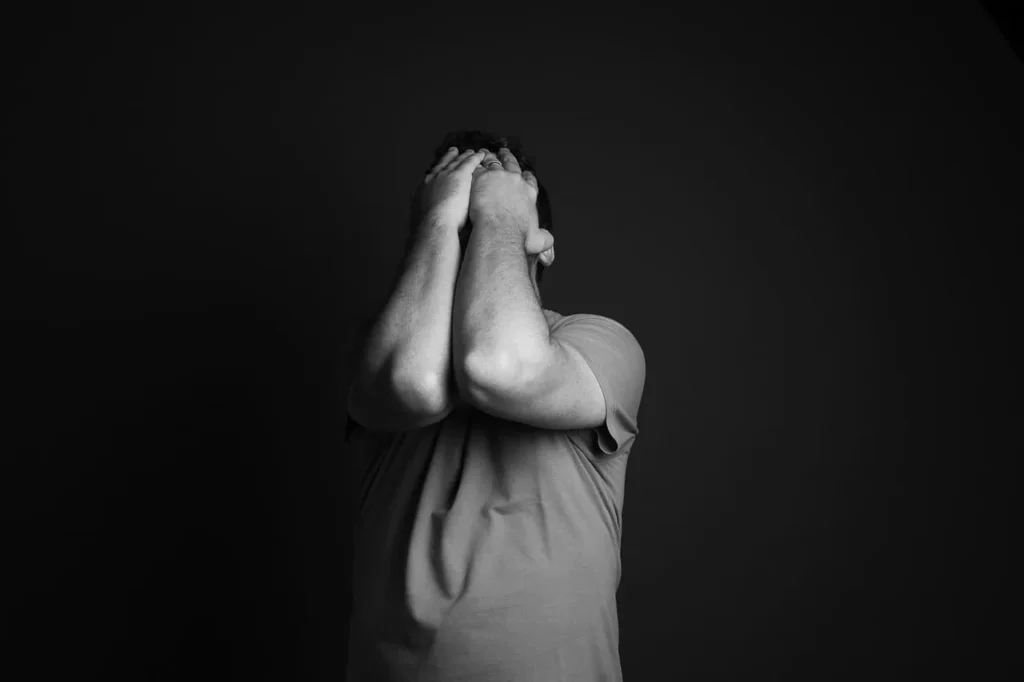
Have you ever wondered what menopause anxiety feels like? It’s a common question that many women approaching or experiencing menopause often consider. The transition through menopause is not only a physical change but an emotional rollercoaster that can leave you feeling estranged from the person you once were. Understanding the emotional impact of menopause anxiety can help you navigate this significant phase of life with a better outlook. Let’s explore how menopause anxiety manifests and how you can manage it effectively.

What is Menopause?
Menopause marks the end of your menstrual cycles and is diagnosed after you’ve gone 12 consecutive months without a menstrual period. It typically occurs in your late 40s or early 50s, with the average age in the U.S. being 51. However, menopause is not just a single event or a one-and-done experience. It’s a gradual process often beginning with perimenopause, which can start several years before you actually hit menopause.
Menopause Stages
Menopause can be divided into three main phases:
-
Perimenopause: This transition phase can start eight to ten years before menopause and involves irregular periods and fluctuations in hormone levels.
-
Menopause: This phase is reached when you haven’t had a period for 12 consecutive months. Symptoms can include hot flashes and night sweats.
-
Postmenopause: This stage follows menopause and involves a continued decline in hormones. You’ll no longer have menstrual periods, but some symptoms might linger.
Understanding these stages can help you prepare emotionally and physically for the changes you may experience.
Symptoms of Menopause Anxiety
Menopause anxiety may present itself differently in each individual, but there are some common symptoms that you might experience. Recognizing these can help you identify and address them effectively.
Physical Symptoms
Although menopause anxiety primarily impacts your emotional well-being, it can also lead to several physical symptoms such as:
- Rapid heartbeat
- Shortness of breath
- Fatigue
- Insomnia
- Tension headaches
These physical manifestations can exacerbate feelings of anxiety, creating a challenging cycle to break.
Emotional and Psychological Symptoms
The emotional toll of menopause can be intense, leading to symptoms such as:
- Mood swings
- Irritability
- Panic attacks
- Overwhelming feelings of worry or fear
You might find yourself feeling trapped in a cycle of anxiety, where the fear of symptoms leads to increased panic.

The Role of Hormones in Menopause Anxiety
Hormones play a significant role in how you experience menopause. The reduction in estrogen and progesterone impacts your brain chemistry, which can contribute to feelings of anxiety.
Estrogen’s Influence on Mood
Estrogen has a direct impact on serotonin, a neurotransmitter that helps regulate mood. Lower levels of estrogen can lead to a drop in serotonin, which may contribute to feelings of anxiety and mood swings.
Progesterone’s Calming Effect
Progesterone is known for its calming effect on the body. A reduction in this hormone can lead to difficulty sleeping, irritability, and heightened anxiety. Understanding these hormonal changes can help you determine the best ways to address your symptoms.
Emotional Impact of Menopause Anxiety
Menopause anxiety can have a profound impact on your emotional well-being, affecting various aspects of your life.
Relationships and Social Life
Anxiety can make you feel isolated, even when surrounded by loved ones. It might be difficult for others to understand what you’re going through, leading to potential strains in relationships. Open communication is crucial in maintaining strong connections during this time.
Self-Esteem and Body Image
The physical changes that accompany menopause can lead to concerns about your self-image and confidence. Weight gain, changes in skin texture, and other visible aging signs can exacerbate anxiety levels, making it difficult to see yourself as the person you once were.
Work and Productivity
Difficulties with concentration, memory, and motivation can affect your productivity at work. These cognitive changes can make you feel less competent, adding to the stress and anxiety during menopause.

Managing Menopause Anxiety
While menopause anxiety can be overwhelming, there are several strategies and treatments that can help manage symptoms effectively.
Lifestyle Adjustments
Adopting healthier lifestyle choices can help mitigate the impact of menopause anxiety. Consider the following:
- Regular exercise, such as walking or yoga, to boost your mood and energy levels.
- A balanced diet rich in fruits, vegetables, whole grains, and lean proteins to support overall health.
- Limiting caffeine and alcohol, which can exacerbate anxiety symptoms.
- Prioritizing sleep by creating a calming bedtime routine.
Mindfulness and Relaxation Techniques
Mindfulness practices can be particularly helpful in managing anxiety. These may include:
- Meditation or deep breathing exercises to reduce stress.
- Journaling to process emotions and keep track of anxiety triggers.
- Engaging in hobbies or activities that bring joy and relaxation.
Professional Support and Therapy
Sometimes, seeking professional help can offer the guidance needed to manage anxiety effectively. Consider:
- Cognitive-behavioral therapy (CBT) to help change negative thought patterns.
- Speaking with a counselor or psychologist who specializes in menopausal anxiety.
- Joining support groups to connect with others experiencing similar challenges.
Medical Treatments
If lifestyle changes and therapy aren’t enough, medical treatments can provide relief. Discuss these options with your healthcare provider:
- Hormone replacement therapy (HRT) to address hormonal imbalances.
- Antidepressants or anti-anxiety medications to help manage symptoms.
- Herbal supplements that some believe might relieve menopausal symptoms, although you should approach these with caution and consult a doctor first.
Creating a Supportive Environment
Having a supportive environment can make a significant difference in how you cope with menopause anxiety. Here are some ways to foster such an environment:
Communicating with Loved Ones
Share your experiences and feelings with those close to you. Let them know how they can help and support you during this time. This might involve simply listening or, more practically, accommodating your needs.
Educating Yourself and Others
Knowledge is empowering. Educate yourself about menopause and its effects, and share this information with those around you. Breaking down misconceptions and misunderstandings can pave the way for better support.
Finding Your Community
Connecting with women who are experiencing similar changes can be incredibly reassuring. Look for local or online support groups where you can share experiences and trade tips on managing menopause anxiety.

The Positive Side of Menopause
While the focus might often be on the challenges of menopause, it can also be a liberating time in your life. With the end of your menstrual cycle:
- You can say goodbye to period-related discomfort.
- You may feel a new sense of freedom in your lifestyle choices.
- It might encourage you to prioritize your health and well-being more consciously.
Embracing a New Chapter
Consider this phase of life as a new beginning where you can explore interests, hobbies, and goals that you didn’t have time for before. Use this opportunity to focus on self-care and development.
Reflecting on Personal Growth
Menopause can be a time of introspection, where you reflect on your life’s journey, challenges faced, and triumphs achieved. This period of reflection can foster personal growth and resilience.
Conclusion
In conclusion, while menopause anxiety can be an overwhelming and challenging experience, understanding its emotional impact allows you to address its symptoms effectively. By recognizing the emotional and physical manifestations of menopause anxiety, you can take proactive steps to manage your health and well-being. Remember, you’re not alone on this journey. With the right strategies, support, and mindset, you can navigate this life transition with grace and strength, embracing all the changes it brings.
